When it comes to small-space living, understanding the difference between a kitchen and kitchenette is key. Both spaces have their own unique advantages and disadvantages, but knowing which one will work best for your needs is essential. In this comprehensive guide, we will take a look at everything you need to know about kitchens vs. kitchenettes – from size and layout to features and functionality. So read on to learn more, and then decide which is right for you!
What Is a Kitchen?
A kitchen is a room or area of a home used for cooking and food preparation. A typical kitchen includes cabinets, countertops, appliances, and a sink. In some homes, the kitchen also serves as a dining room.
Over time, kitchens have evolved to become more sophisticated spaces equipped with all the latest gadgets and appliances. Today, there are many different types of kitchens to choose from – from traditional to contemporary – and each one has its own unique benefits.
What is a Kitchenette
As you can see from the suffix -ette, a kitchenette is simply a small or mini kitchen. It might be found in a guest room of a home, or it could be an efficient apartment with very limited space. A kitchenette is a small-scale version of a kitchen that includes the bare essentials. Kitchenettes are often found in hotel rooms, efficiency apartments, and other small spaces where cooking meals is desired but a full-fledged kitchen isn’t possible.
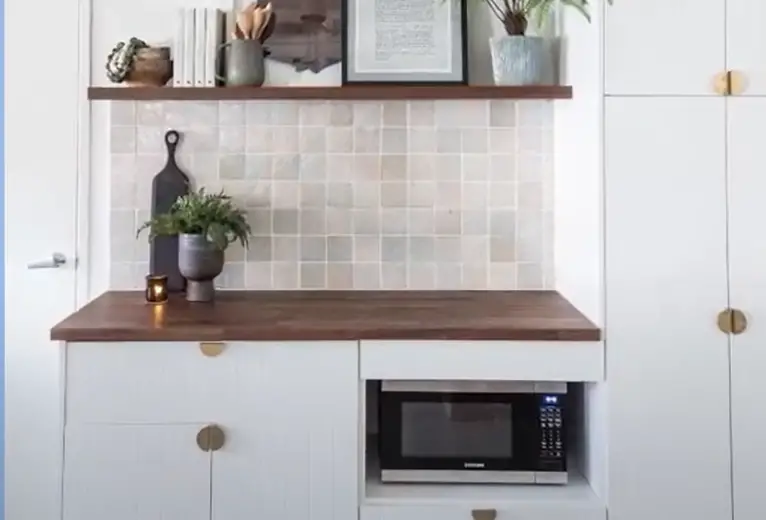
While the term “kitchenette” can technically be used to describe any small kitchen setup, it usually refers to a space that doesn’t have a built-in oven. This means that if you want to bake or roast food in your kitchenette, you’ll need to use a countertop oven or microwave with an integrated convection feature. [1], [2]
Main Differences Between Kitchen and Kitchenette
The two terms are often used interchangeably, but there are some key differences between a kitchen and kitchenette. We’ll explore the main differences so that you can make an informed decision about which option is right for your home.
Size
One of the most obvious differences between a kitchen and kitchenette is size. A kitchen is typically much larger than a kitchenette, which is designed for smaller spaces. This difference in size can have a big impact on the overall functionality of the space. Kitchens are usually 80 square feet or more, while kitchenettes are typically less than 80 square feet.
Because of this, a larger kitchen will generally have more counter space, storage, and appliances. This can be ideal if you enjoy cooking large meals or entertaining guests. On the other hand, a smaller kitchenette may be more suitable for someone who doesn’t do much cooking or only entertains on a small scale. [3]
Fittings and Fixtures
Another difference between kitchens and kitchenettes are the fittings and fixtures. We already know that kitchens are typically larger than kitchenettes and have more counter space. They also usually come equipped with full-sized appliances like stoves, ovens, dishwashers, and refrigerators. If you’re lucky enough to have a full kitchen in your apartment, you’ll be able to do much more cooking and entertaining than you would in a kitchenette. On the other hand, kitchenettes typically have smaller appliances like microwaves, mini-fridges, and toaster ovens.
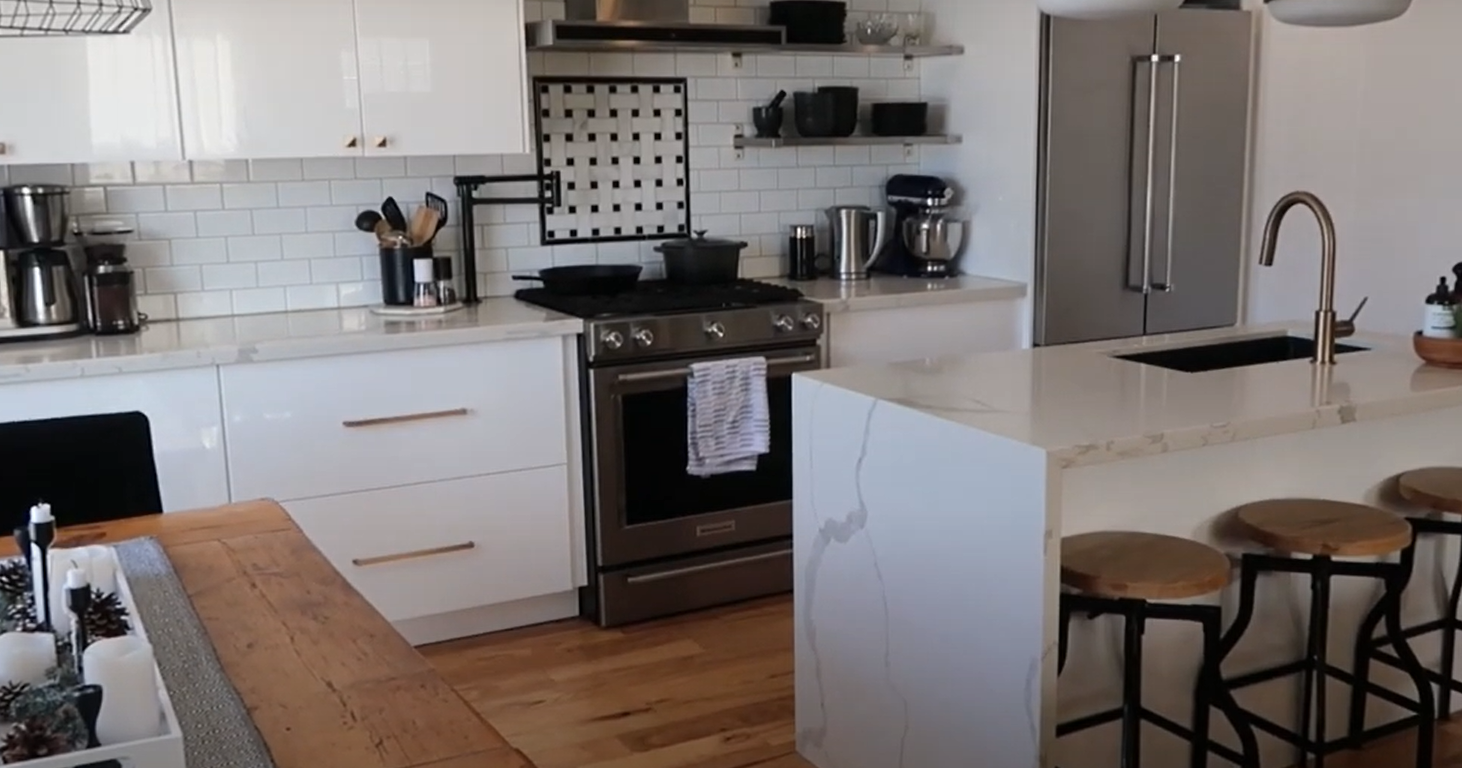
Kitchens also often have more storage than kitchenettes. This is because they typically have more counter space and cabinets.
Kitchenettes, on the other hand, tend to have less storage. They might have a few shelves or cabinets, but they typically don’t have as much space as a kitchen. [1], [3]
Purpose
A kitchen can be used for all the following: cooking, dining, storage, or entertaining while a kitchenette is typically only used for light cooking. This difference in purpose can impact the overall design of the space. For example, a kitchenette might have a countertop with two bar stools where you can eat quick meals or entertain guests. A kitchen would likely have a separate dining area if you plan on doing formal entertaining.
This distinction is important to consider when deciding which option is right for your home. If you’re someone who loves to cook, or entertain on a regular basis, then a kitchen would likely be the better option. However, if you only need a place to cook simple meals, then a kitchenette might be more your style. [1], [3]
Suitability
The next difference to consider is suitability for your space. A kitchen is typically found in large houses or apartments, while a kitchenette is more common in smaller spaces like studios and dormitories. This is because a kitchenette takes up less space and can be more easily incorporated into a smaller floor plan.
Additionally, kitchens are more suitable for professional cooks and larger families, while kitchenettes are better suited for people who don’t do a lot of cooking and/or live single.
So, which one is right for you? It really depends on your individual needs and preferences. If you have a large family or enjoy cooking elaborate meals, then a kitchen may be the better option. However, if you live alone or have a small space, then a kitchenette may be more appropriate. [1], [3]
Customization options
When it comes to customization options, kitchens typically have more than kitchenettes. If you’re someone who likes to personalize your space and make it truly your own, a kitchen is the way to go. With a kitchen, you can choose from a variety of layout options, finishes, and fixtures. Kitchenettes, on the other hand, are more limited in terms of what you can do with them. You can customize everything from the countertops to the cabinets in a kitchen, but with a kitchenette, you’re generally stuck with whatever comes standard.
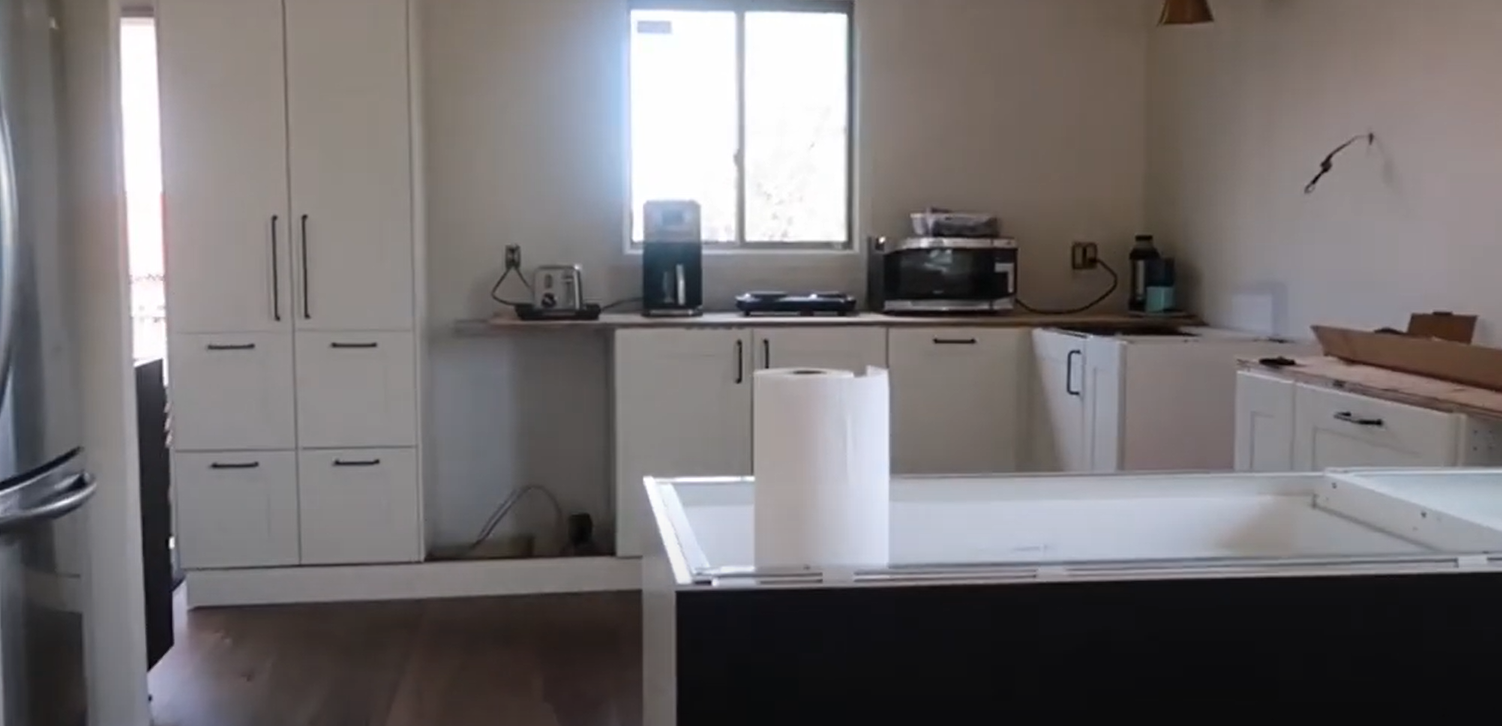
One of the main reasons for this is as you may guess, the size. Kitchens are generally larger than kitchenettes and this means that there’s more room to work with when it comes to things like layout and design. Kitchenettes also tend to be part of larger rooms, such as studio apartments or hotel suites. As such, they’re usually not designed with the same level of detail as kitchens. Still, you can customize them to some degree, so they’d fit into your space better. [3]
Price
Finally, one of the most important differences between kitchens and kitchenettes is price. Kitchens can be quite expensive, depending on the materials you use and the features you include. Kitchenettes, on the other hand, are typically more affordable. This is because they’re smaller and have less storage and fewer features.
Of course, the price also depends on things like brand and quality. But in general, a kitchenette will cost you less than a full-fledged kitchen. [3]
Advantages of Kitchen and Kitchenettes
Now that we’ve gone over the key differences between kitchens and kitchenettes, let’s compile a list of advantages for each.
Advantages of a Kitchen
Kitchens are known to be incredibly versatile, and not just for cooking. Kitchens can also serve as a place to eat, entertain guests, and even do homework. But what are the main advantages of having a kitchen exactly? Let’s take a look!
Kitchen is a seperate room in the house
A kitchen is typically a seperate room in the house, which means it can be closed off from the rest of the living space. This can be beneficial for two reasons: noise and smells. If you’re cooking a particularly smelly dish or if you have small children who are napping, being able to close the door to contain those noises and smells can be very helpful. [3], [5], [6]
It has a lot of room for storage
Another great advantage of having a kitchen is that they typically have a lot of storage space. Kitchens usually have plenty of cabinets and countertops to store all your pots, pans, dishes, food, and small appliances. And if you’re short on storage space, there are always creative solutions like hanging pots and pans from the ceiling or using an empty wall to install some shelving.
Plus, if you have a kitchen with an eat-in area, that can double as extra storage space for things like bulk items or holiday decorations. Just tuck them away in the corner until you need them! [3], [5]
Disadvantages of a Kitchen
Still not convinced that a kitchen is right for you? Let’s take a look at some of the potential disadvantages.
Price
One downside of having a kitchen is that they can be expensive to install and maintain. If you’re renting an apartment, your landlord may be reluctant to do any major renovations like adding a kitchen. And even if you own your home, kitchens can be pricey to update or expand.[3], [5]
Its harder to clean
Another potential downside of having a kitchen is that they’re harder to keep clean than a kitchenette. Kitchens have more surfaces and appliances that need to be cleaned, and there’s usually less ventilation, which can mean smells linger longer. If you’re not someone who enjoys cleaning or if you don’t have a lot of time for it, a kitchenette might be a better option. [3]
Advantages of Kitchenettes
Just like kitchens, kitchenettes have a few advantages that make them a great option specifically for small spaces.
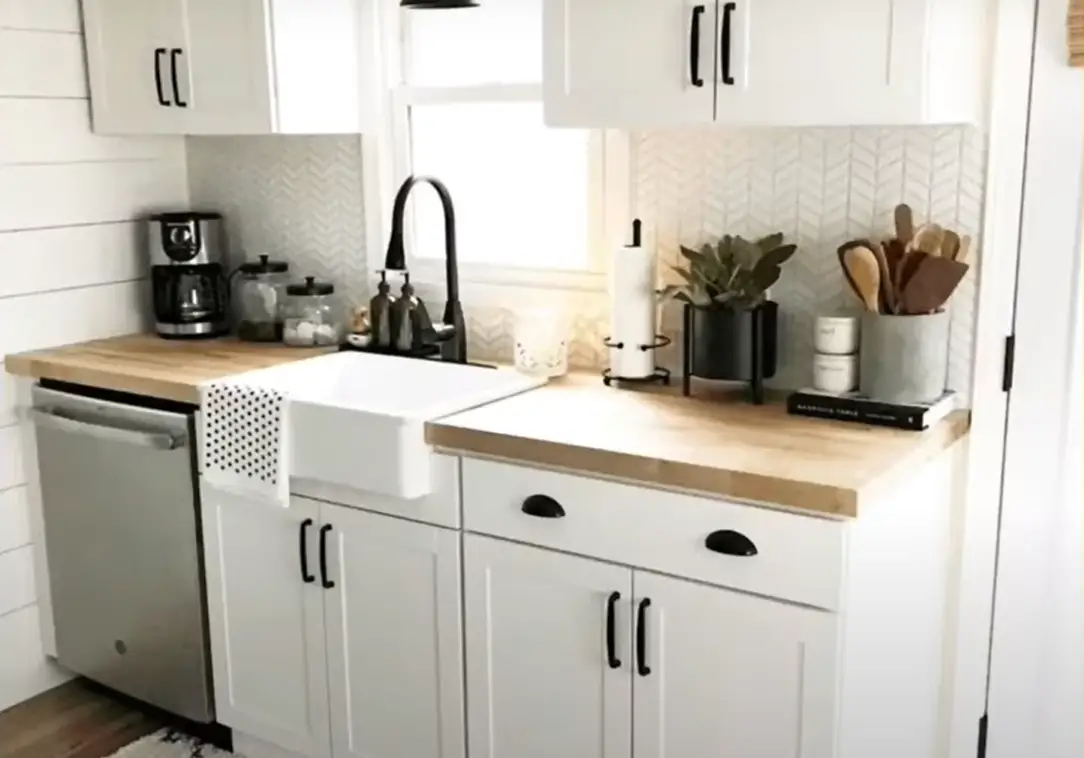
It’s a cheaper option than a full kitchen
One of the main reasons why people choose to go with a kitchenette instead of a full kitchen is because it’s more affordable. If you’re building or renovating an apartment, efficiency, or other small living space, outfitting it with a kitchenette can save you a significant amount of money.
This is because kitchenettes require far less plumbing, electrical work, and appliances than kitchens do. You’ll also need fewer cabinets and countertops in a kitchenette since everything is on a smaller scale. [2], [3], [4], [5]
They are low-maintenance
Another advantage of kitchenettes is that they are relatively low-maintenance. Since there’s less surface area and fewer appliances, there’s also less to wipe down and scrub on a regular basis. If you don’t have a lot of time for cleaning or if you hate doing it, a kitchenette is definitely the way to go. [3]
Disadvantages of Kitchenettes
Of course, kitchenettes also have a few disadvantages that you should be aware of before making your decision.
Size
The biggest disadvantage of a kitchenette is the obvious one: size. If you love to cook, or if you entertain often, a kitchenette simply won’t give you the same amount of space to work with that a full kitchen will. This means that you’ll have to get creative with your food prep and storage. You also won’t be able to have as many appliances and cookware, which can be frustrating if you’re used to having a fully stocked kitchen. [2], [3], [4], [5]
Kitchen vs. Kitchenette: Understanding the Distinctions
Whether you’re designing a new space or considering renovations, it’s essential to know the difference between a kitchen and a kitchenette. To help you make an informed choice, we’ve created an extensive comparison table with multiple columns to highlight the key distinctions between these two culinary spaces.
| Aspect | Kitchen | Kitchenette |
|---|---|---|
| Size | Generally larger, with more space for appliances, cabinets, and countertop areas. | Compact and smaller in size, typically with limited space for appliances and storage. |
| Appliances | Can accommodate a full range of appliances, including large refrigerators, ovens, and dishwashers. | Usually equipped with smaller appliances, such as mini-fridges, microwave ovens, and compact cooktops. |
| Functionality | Designed for extensive meal preparation, cooking, and storage, suitable for larger households. | Primarily intended for light cooking, beverage preparation, and minimal food storage, ideal for smaller living spaces. |
| Layout | Often features an open and spacious layout with room for a dining area or kitchen island. | Characterized by a compact and efficient layout that optimizes the available space. |
| Storage | Provides ample cabinet and pantry space for food, cookware, and kitchen essentials. | Offers limited storage options, which may require creative organization solutions. |
| Cost | Typically more expensive due to the larger size and the need for a full range of appliances and materials. | Generally more budget-friendly due to the reduced size and fewer appliances and materials required. |
| Utilities | Can accommodate various plumbing and electrical requirements, including multiple sinks and outlets. | Requires simplified plumbing and electrical setups suitable for smaller-scale needs. |
| Usage | Ideal for larger households, serious home cooks, and those who frequently entertain guests. | Suited for individuals, couples, or small families looking for basic meal preparation and convenience. |
| Customization | Offers more room for customization and personalization in terms of design and features. | Allows for customization within the confines of limited space and functionality. |
Explanation of the Table:
- Aspect: Lists different aspects to consider when comparing kitchens and kitchenettes.
- Kitchen: Provides information about kitchens in each aspect.
- Kitchenette: Provides information about kitchenettes in each aspect.
By examining these aspects, you can make an informed decision about whether a kitchen or a kitchenette is the better fit for your specific needs, space, and lifestyle.
FAQ
What is considered a kitchenette?
A kitchenette is a small cooking area, usually with a sink, a hotplate, and a refrigerator. It’s often found in hotel rooms, efficiency apartments, or other small spaces where a full kitchen wouldn’t fit. Kitchenettes typically don’t have enough space to accommodate an oven, which is why they’re not ideal for cooking large meals. However, they can be great for preparing quick and easy meals or snacks.
Do kitchenettes have a stove?
A kitchenette usually doesn’t have a stove, but one can be installed if desired. A stovetop is the primary appliance in a kitchen, so not having one means that the space is more limited in terms of cooking. However, there are other ways to cook food without a stove, such as using a microwave, toaster oven, hot plate, or crockpot.
Does a kitchenette have to have a sink?
No, but most kitchenettes will have a small sink. This is because a lot of the time, kitchenettes are found in smaller spaces like apartments or studios. If your kitchenette doesn’t have a sink, you can always install one!
Sinks are not strictly necessary in kitchenettes, but they are definitely useful. If you have the space for a small sink, we recommend installing one! It’ll make life much easier when it comes to washing dishes and preparing food.
What is the main distinction between a kitchen and a kitchenette?
The primary difference between a kitchen and a kitchenette is the size and functionality. A kitchen is a larger, fully equipped space used for cooking, food preparation, and often includes dining and storage areas. In contrast, a kitchenette is a smaller, simplified version of a kitchen, typically found in spaces like hotel rooms or small apartments, with limited cooking facilities and amenities.
What appliances are commonly found in a kitchen that may not be in a kitchenette?
Kitchens typically feature a full range of appliances, including a stove or cooktop, oven, refrigerator, dishwasher, and often a microwave. In contrast, a kitchenette may have fewer appliances, with a basic setup that might include a small refrigerator, microwave, and possibly a sink.
Can you provide examples of where you might find a kitchenette instead of a full kitchen?
Kitchenettes are commonly found in places where a full kitchen might be impractical due to limited space or the specific function of the area. Examples include hotel rooms, college dormitories, studio apartments, guesthouses, and some office break rooms. They are designed to provide basic food preparation capabilities without taking up excessive space.
Is it possible to upgrade a kitchenette into a full kitchen?
In some cases, it may be possible to upgrade a kitchenette into a full kitchen, depending on the available space and budget. This could involve adding additional appliances, expanding counter space, and installing plumbing for a sink. However, it’s essential to consider the feasibility and cost of such an upgrade, as it may require significant renovations.
What are the advantages of having a full kitchen over a kitchenette?
A full kitchen offers more functionality and versatility for cooking and meal preparation. It provides a broader range of appliances and storage options, making it suitable for cooking larger, more elaborate meals. Additionally, a full kitchen is more convenient for those who enjoy cooking and need a complete cooking space.
Are there any regulations or standards that define the difference between a kitchen and a kitchenette?
Regulations and standards for kitchens and kitchenettes can vary by region and jurisdiction. In some cases, building codes or zoning regulations may specify the requirements for each. It’s advisable to consult local building authorities or codes to understand the specific definitions and requirements in your area.
Useful Video: Is a Kitchen or a Kitchenette Best
Conclusion
When it comes to apartment living, space is often limited. This is especially true when it comes to the cooking area. In order to make the most of your limited space, it’s important to know the difference between a kitchen and a kitchenette. The most obvious distinction is size. A kitchen is larger and can accommodate more appliances and cabinetry. If you have a lot of storage needs or like to cook elaborate meals, then you’ll want to go with a full-sized kitchen. A kitchenette, on the other hand, is smaller and typically has less counter space, fixtures and storage. It’s perfect for people who live alone, don’t cook often or just need a little bit of extra room in their apartment. Kitchenettes are also cheaper to install than kitchens, so they might be a better option if your budget is tight. Ultimately, the decision comes down to how much space you have and what you plan to use it for. If you’re not sure, it’s always best to consult with a professional designer or contractor who can help you figure out what will work best for your needs. Thanks for reading!
References
- https://www.architecturelab.net/kitchen-vs-kitchenette/
- https://www.homedit.com/difference-between-kitchen-and-kitchenette/
- https://blog.chefsvisionknives.com/kitchen-vs-kitchenette-pros-cons/
- https://www.zumper.com/blog/kitchen-vs-kitchenette-whats-the-difference/
- https://blog.apartmentsearch.com/apartment-life/kitchen-vs-kitchenette-whats-the-difference/
- http://www.differencebetween.net/language/words-language/difference-between-kitchen-and-kitchenette/



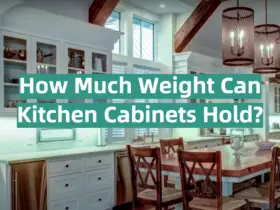

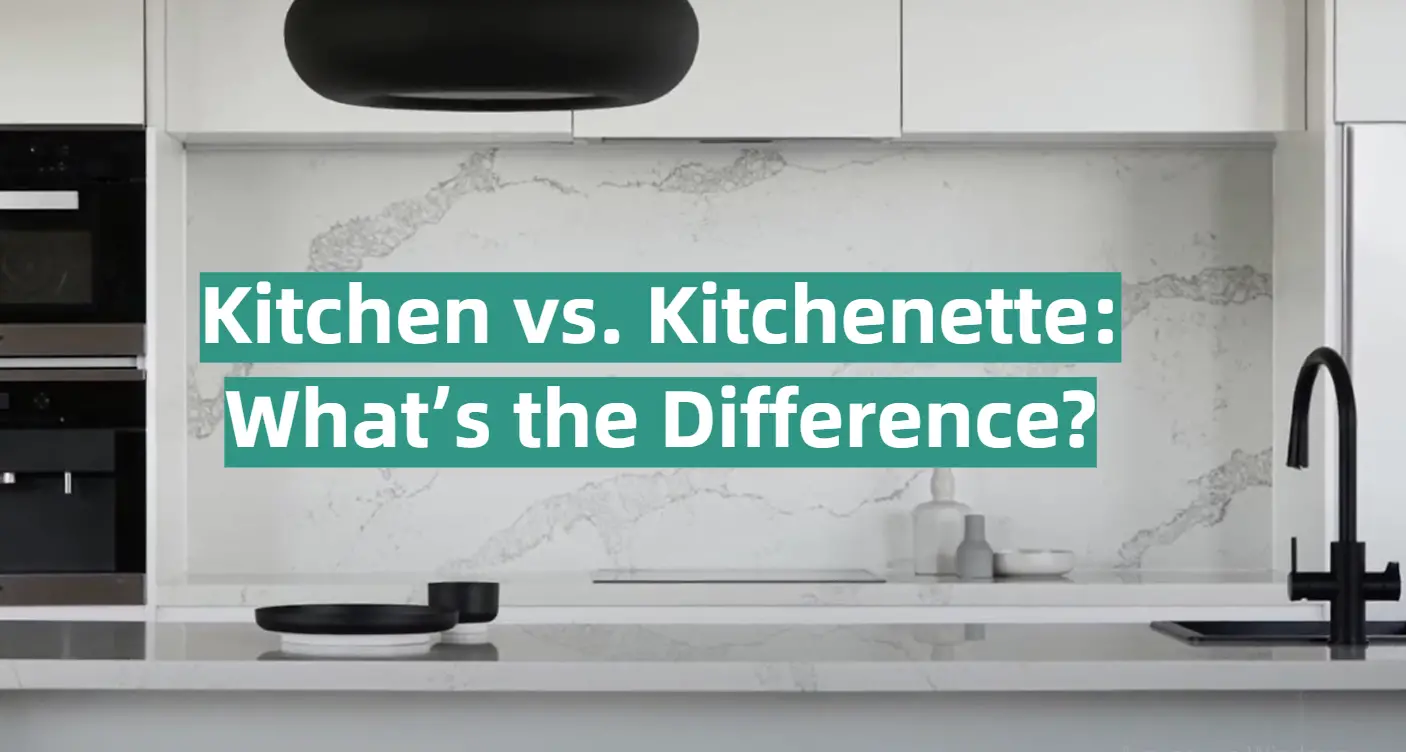

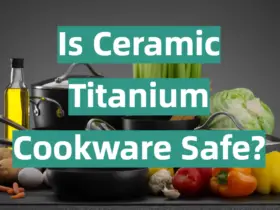





Leave a Reply